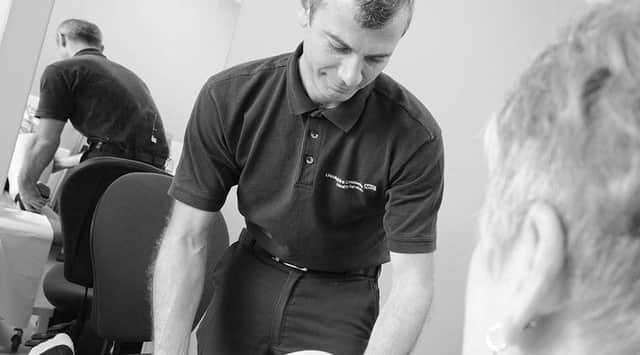COLUMN: Our service for bones, muscles, joints and more
This article contains affiliate links. We may earn a small commission on items purchased through this article, but that does not affect our editorial judgement.


We treat conditions that affect bones, muscles, joints, ligaments and tendons.
We also support people to manage their own injuries or conditions through movement and exercise therapy, supported by physiotherapists.
Advertisement
Hide AdAdvertisement
Hide AdAround a third of people in the UK live with an MSK condition and these conditions account for 30 per cent of GP appointments. Maintaining good MSK health improves bone density (reducing the risk of osteoporosis), increases glucose tolerance (reducing the risk of type 2 diabetes and improving cardiovascular health) and makes it easier for people to go about their daily life without pain, discomfort or reduced mobility.


There are some simple things you can do which will help to maintain good MSK health. I would personally recommend following the Chief Medical Officer’s guidelines on physical activity and trying to do 150 minutes of moderate physical activity or 75 minutes of vigorous activity every week.
Moderate activity might be something like a brisk walk or bike ride whilst vigorous activity could be a run around your local area. I’d also recommend completing activities to maintain strength twice a week such as carrying heavy shopping, heavy gardening or resistance/weight training.
Older adults should also try to include some balance and flexibility exercises, as this can reduce the risk of falls and improves confidence with movement.
Advertisement
Hide AdAdvertisement
Hide AdI know this sounds like a lot, so maybe try with small changes first, such as a regular lunchtime walk, using the stairs instead of lifts, or walking a short distance to the shops instead of driving.
Finding something you enjoy and building it into your routines, often helps people to maintain new healthy habits – try not to force yourself to continue with something you dislike as it’ll be harder to stick to. Perhaps try walking with a friend or saving your favourite podcast or music to listen to whilst you move.
If you are struggling with your MSK health, our website www.lincsphysio.nhs.uk, Facebook page @lchsmskphysiotherapy and Instagram @lchsmskphysiohtherapy can help with self-management of some conditions. For example, if you are struggling with plantar fasciitis, pain on the tissue on the underside of your foot, back or neck pain there is advice to help manage your symptoms, return to normal movement and be able to complete the activities you enjoy again.
If you think you may benefit from LCHS’ MSK physiotherapy service, please speak to your GP.